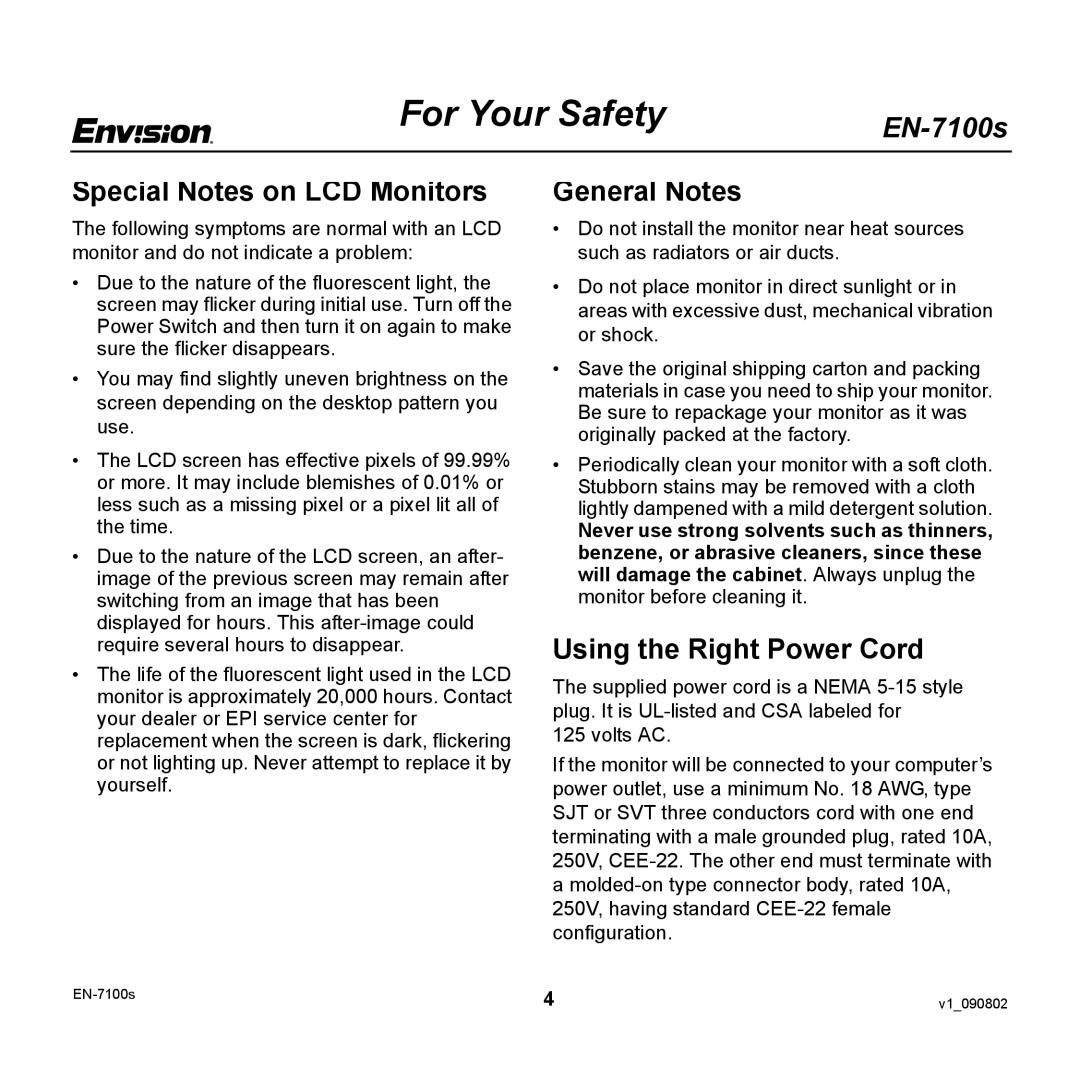For Your Safety
Special Notes on LCD Monitors
The following symptoms are normal with an LCD monitor and do not indicate a problem:
•Due to the nature of the fluorescent light, the screen may flicker during initial use. Turn off the Power Switch and then turn it on again to make sure the flicker disappears.
•You may find slightly uneven brightness on the screen depending on the desktop pattern you use.
•The LCD screen has effective pixels of 99.99% or more. It may include blemishes of 0.01% or less such as a missing pixel or a pixel lit all of the time.
•Due to the nature of the LCD screen, an after- image of the previous screen may remain after switching from an image that has been displayed for hours. This
•The life of the fluorescent light used in the LCD monitor is approximately 20,000 hours. Contact your dealer or EPI service center for replacement when the screen is dark, flickering or not lighting up. Never attempt to replace it by yourself.
General Notes
•Do not install the monitor near heat sources such as radiators or air ducts.
•Do not place monitor in direct sunlight or in areas with excessive dust, mechanical vibration or shock.
•Save the original shipping carton and packing materials in case you need to ship your monitor. Be sure to repackage your monitor as it was originally packed at the factory.
•Periodically clean your monitor with a soft cloth. Stubborn stains may be removed with a cloth lightly dampened with a mild detergent solution.
Never use strong solvents such as thinners, benzene, or abrasive cleaners, since these will damage the cabinet. Always unplug the monitor before cleaning it.
Using the Right Power Cord
The supplied power cord is a NEMA
125 volts AC.
If the monitor will be connected to your computer’s power outlet, use a minimum No. 18 AWG, type SJT or SVT three conductors cord with one end terminating with a male grounded plug, rated 10A, 250V,
4 | v1_090802 | |
|
